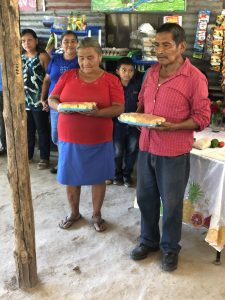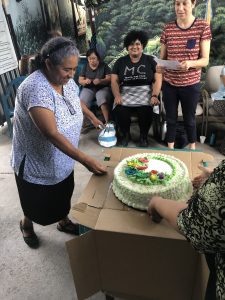by David Rohrer
Throughout history communion has been wrought with conflict. Heated debate focused on:
- Who can participate?
- Who can officiate?
- What’s required to prepare for communion?
- What elements are used?
- What process occurs in those who partake?
- Is Christ in the host (bread) or only there with his “real presence?”
- Is communion necessary for salvation?
Through the centuries, communion was deemed so important that groups of worshipers split or refused to worship together over their differences. Luther and Zwingli met to agree on the meaning of communion and, by doing so, unite German and Swiss reform movements. But they failed. In fact, emotions ran so high that, in parting, Luther refused to shake Zwingli’s hand.
Our visit to Christian base communities in El Salvador showed me that the questions above miss the point. There people celebrated communion creatively and joyfully, then got busy being the body of Christ, helping those on the fringes and working for social justice.


The key question then is: What happens after communion? However we practice communion, what is the result of remembering Jesus Christ, of being in his presence, or of partaking of his body? So here are the important questions about communion:
Are we feeding the hungry?
Are we visiting those in prison?
Are we caring for the sick?
Are we welcoming the excluded?
Are we rooting out systemic injustice?
Are we peacemakers?
In her article, “Communion—a brief historical/theological summary,” Sara Wenger Shank writes, “they gathered to break bread together and scattered to offer that ‘bread’ to the world. Outsiders were invited in. The ‘supper’ was a participation not only in Jesus’ death, but also an encounter with his living presence.”


Leave a Reply